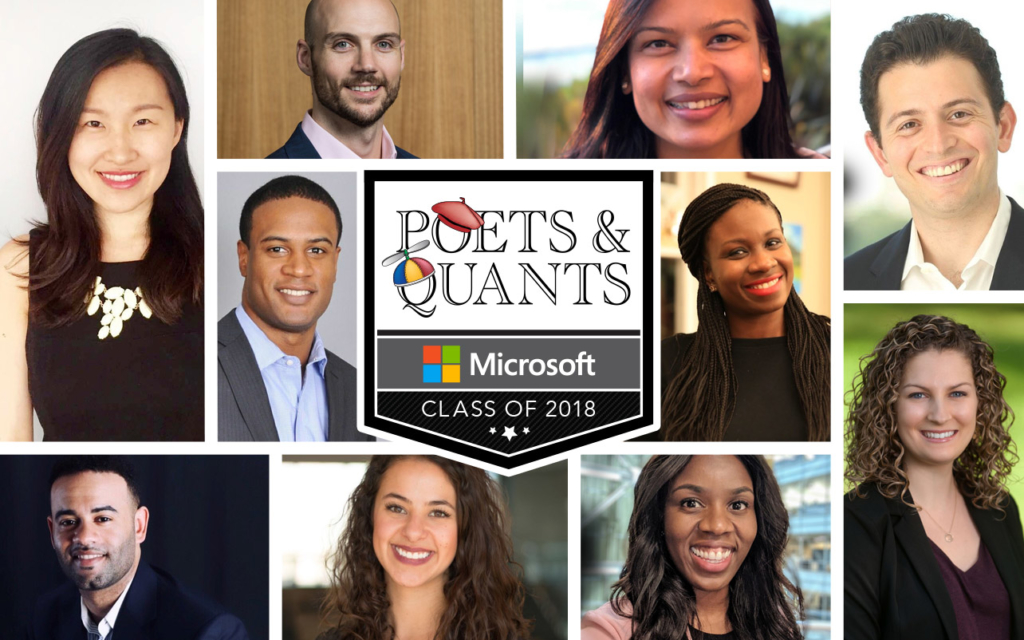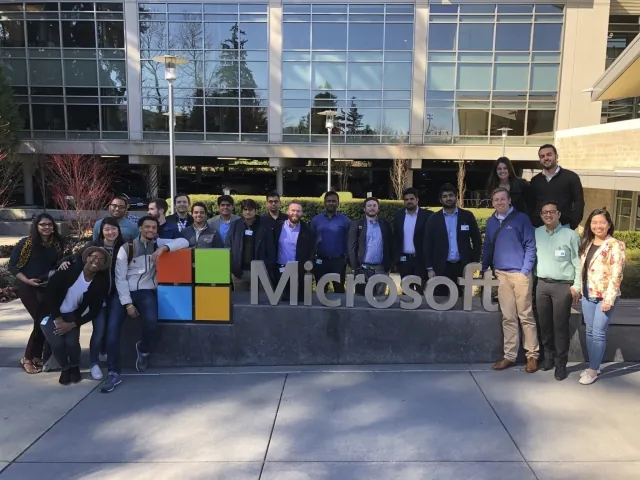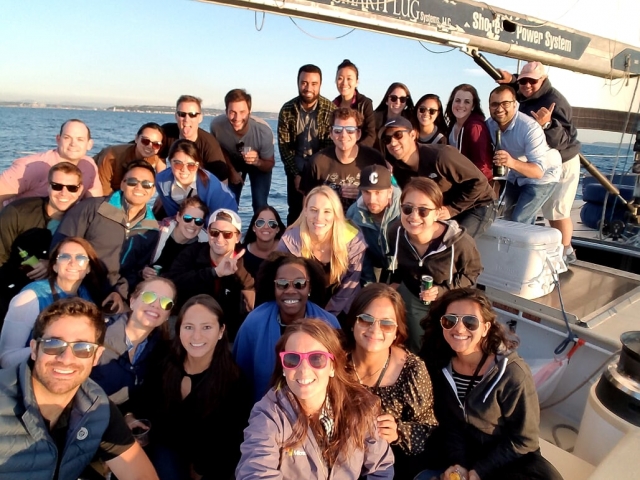What fosters growth? In business, growth is the result of strategy, sweat, and superiority. The rewards are power and prestige, higher stock prices and fawning media coverage. With scale comes the urge to dream big and the resources to transform markets. It is this combination of purpose and positioning that turned Microsoft into the feel-good story of the decade.
When Satya Nadella succeeded Steve Ballmer as Microsoft’s CEO in 2014, the company’s market cap stood at roughly $270 billion dollars. Fast forward five years and that number had swelled to a trillion dollars. No doubt, the news elicited a few private toasts in Microsoft’s Redmond compound. Among the rank-and-file, says Steve Lipner, the milestone was greeted with a business-as-usual shrug. A Wharton MBA who joined Microsoft as an account executive in 2018, Lipner observed that his peers instead remained focused on the future.
“We should never become complacent, but instead constantly strive for more. Microsoft’s growth mindset culture really pushes its employees to learn more and see what else we’re capable of.”
SEEKING CURIOUS “WORKS-IN-PROGRESS”
That mindset is rooted in the types of people hired at Microsoft, particularly from the MBA ranks. For Diego Rejtman, general manager for Microsoft Global University Recruiting, growth starts with continuous learning. In fact, Rejtman shares that curiosity – and a love of continuous learning – are his top criteria for making hires. From finance to operations to sales, he tells P&Q in a 2018 interview, Microsoft seeks MBAs whose trajectory demonstrate a zeal for self-improvement…the kind that ultimately leads to innovative thought and committed action.
“Learning comes from getting outside your comfort zone and taking risks,” Rejtman explains. “When I look at resumes, what I am trying to figure out is if this person is using every possible opportunity or experience they have to learn. We like to say that an employee works for Microsoft, but Microsoft also works for that employee. Microsoft is a platform for us to pursue our passion.”
Question is, adds Rejtman, will MBAs take advantage of this platform? In his experience, there are two types of people who apply for jobs. The first are finished products, the ones who stopped learning and believe they have everything figured out. The second type – the MBAs who excel at Microsoft – are works-in-progress. Think of them as life-long students who believe they have barely scratched the surface of what they can learn. Among the Class of 2018, Fabiola Bruny clearly fits into the latter category.
A BANNER CLASS IN A BANNER YEAR
A University of North Carolina grad, Bruny spent three months of her MBA program abroad in South America. As part of her leadership immersion capstone, the indoor-loving Bruny braved the elements in the Carolina mountains, lugging 40 pounds of gear on hikes…sans internet and showers, no less. Such trials gave her the courage to shoulder discomfort and the humility to seek out alternatives. Those lessons came in handy during her first year as a solution sales specialist.
“I’ve learned that success isn’t measured by “knowing it all,” she admits. “Having a growth mindset means being curious, continuously learning, and acknowledging that you won’t always have the answers. It has been difficult to embrace this especially when I want to appear competent and add value. However, I continue to learn from others and on many occasions, others have learned from me.”
Lipner and Bruny are among the hundreds of MBAs added by Microsoft last year. You’d be hard-pressed to find a better time to join the company. Xbox, for one, is slated to release a game-streaming service, xCloud, with the potential to become the “Netflix of Gaming.” Microsoft also continues to transform into a cloud-based company, headlined by its flagship Azure platform. At the same time, its personal computing group remains a revenue driver, as the Surface line continues to snap up market share. On top of that, the number of devices running Windows 10 now tops 800 million.
GOING BEYOND THE TYPICAL JOB DESCRIPTION
How are first-year MBA hires helping to drive this growth? Alexis Apostol, who studied sustainability and human capital at the University of Michigan’s Ross School, prefers her unofficial title: “new employee orientation wizard.” Translation: She helps the 22,000 annual new hires “feel like they are valued and belong” so they can be “their authentic, best selves.” On the surface, Columbia Business School alum Angela Wang is a finance manager in the Movies and TV unit. However, her role goes far beyond reporting and forecasting.
“What makes my job exciting to me is the opportunity to delve deep into user behaviors and strategic drivers of the business in order to ensure continued growth on our platform,” she writes. “An unexpected perk of my role is that I’m frequently watching trailers of upcoming movies under the disguise of market research!”
Microsoft is also a place where the sales role is hardly dialing for dollars. Rather than pitching one-size-fits-all solutions, the sales team are expected to be consultants – experts and creatives who can outline new business models and incorporate cutting edge technologies like artificial intelligence. Like consultants, sales members are often folded into a larger team that can touch on a wider range of solutions. Fabiola Bruny’s role is a perfect example: “As part of an account team, I help enterprise customers identify opportunities where using Microsoft’s cloud Azure can result in business benefits like decreased IT costs, faster innovation, better data security, and scalability.”
A PLACE WHERE YOU’LL NEVER GET BORED
David Ellis, another Michigan Ross MBA, entered Microsoft’s Cloud Marketing OnRamp program, a year-long effort with three rotations. In his first four months, he worked in marketing where he developed strategy and messaging. Ellis’ second rotation took him to the Customer Success team, where he drove improvements in user experience with apps and portals. Now, he is finishing his rotation with the Global Demand Center, where he is creating an engagement program for prospects who are considering moving to cloud storage.
Such rotations are indicative of the transitory nature of roles at Microsoft, which employs over 141,000 people total (including 51,000 in Puget Sound alone). This diversity of products and teams creates a lot of opportunities. Diego Rejtman notes, for example, that MBAs are encouraged to move to a new role or unit every 2-3 years – a flexibility that only adds to their value and stirs their creative juices.
“Microsoft is a large enough company that you can easily spend your entire career in different roles and never get bored,” adds Steve Lipner.
AN EQUESTRIAN AND A SHARK FISHERMAN
What word best describes Microsoft employees? Reijman suggests “eclectic,” people who learn from a variety of sources and live true to who they are. The Class of 2018 is no different. For Alexis Apostol, horseback riding is what “feeds my soul.” She has competed in national equestrian competitions since she was nine, even taking courses with Olympic coach George Morris (falling off her horse in the first five minutes of her first lesson). David Ellis’ passion is sharks – as in fishing for deadly Mako Sharks that can weigh over 250 pounds. In contrast, Angela Wang’s outlet is music…the accordion in particular.
“It was a really cool instrument in Shanghai at the time,” she points out. “When I moved to America, I was shocked to learn that it wasn’t nearly as popular here!”
Popular is also a word that could be applied to Microsoft’s 2018 hires. Many had opportunities to join blue ribbon firms like McKinsey, Google, and JP Morgan. Instead, they headed to Washington, the land of cavernous forests, exotic coffees, and never-ending rain. Aditi Shah, a Chicago Booth grad who leads large scale Azure implementations, sums up the Microsoft appeal in a dozen words: “Great people, amazing leadership, and lots of fun things to work on.”













